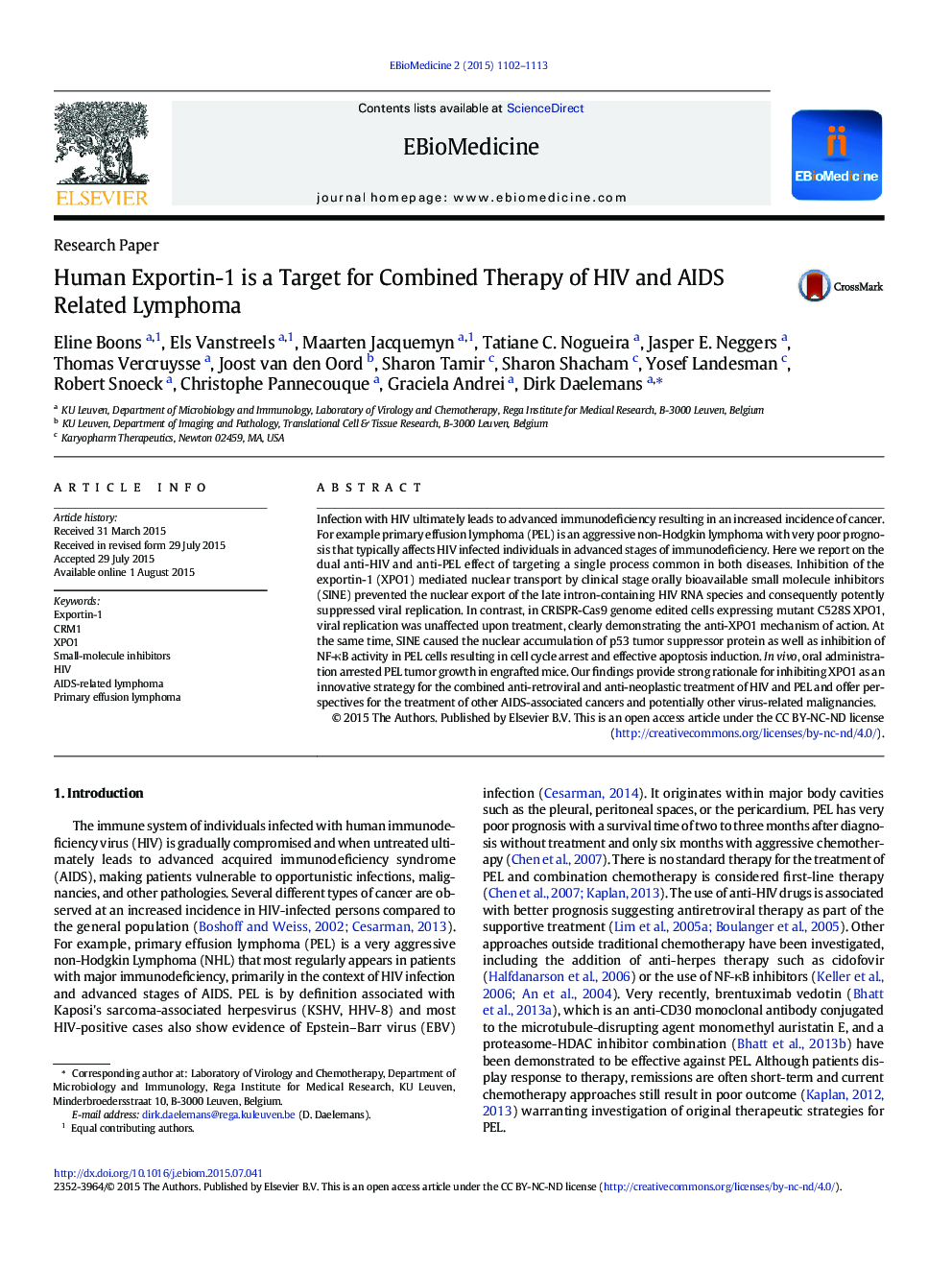| Article ID | Journal | Published Year | Pages | File Type |
|---|---|---|---|---|
| 2120907 | EBioMedicine | 2015 | 12 Pages |
•Selective inhibition of XPO1 suppresses the replication of HIV and induces apoptosis in PEL cells.•Clinical stage orally bioavailable XPO1 inhibitors display potent anti-HIV and anti-PEL activity.•This study validates XPO1 inhibition as a treatment strategy for PEL, especially in the setting of HIV-infection.Infection with human immunodeficiency virus (HIV) compromises the body's immune system leaving infected individuals vulnerable to other pathologies including cancer. Some forms of cancer typically develop in AIDS patients, as for example the very aggressive and most often deadly primary effusion lymphoma (PEL). There is currently no standard treatment for PEL but the use of anti-HIV drugs is associated with better prognosis. Here we show in preclinical tests that inhibitors of nuclear export suppress both HIV replication as well as PEL progression. These findings provide a rationale for further evaluating these inhibitors as treatment strategy for dual HIV/lymphoma therapy.
Infection with HIV ultimately leads to advanced immunodeficiency resulting in an increased incidence of cancer. For example primary effusion lymphoma (PEL) is an aggressive non-Hodgkin lymphoma with very poor prognosis that typically affects HIV infected individuals in advanced stages of immunodeficiency. Here we report on the dual anti-HIV and anti-PEL effect of targeting a single process common in both diseases. Inhibition of the exportin-1 (XPO1) mediated nuclear transport by clinical stage orally bioavailable small molecule inhibitors (SINE) prevented the nuclear export of the late intron-containing HIV RNA species and consequently potently suppressed viral replication. In contrast, in CRISPR-Cas9 genome edited cells expressing mutant C528S XPO1, viral replication was unaffected upon treatment, clearly demonstrating the anti-XPO1 mechanism of action. At the same time, SINE caused the nuclear accumulation of p53 tumor suppressor protein as well as inhibition of NF-κB activity in PEL cells resulting in cell cycle arrest and effective apoptosis induction. In vivo, oral administration arrested PEL tumor growth in engrafted mice. Our findings provide strong rationale for inhibiting XPO1 as an innovative strategy for the combined anti-retroviral and anti-neoplastic treatment of HIV and PEL and offer perspectives for the treatment of other AIDS-associated cancers and potentially other virus-related malignancies.
